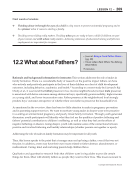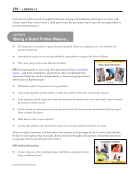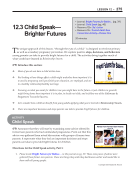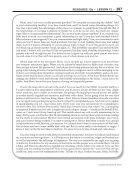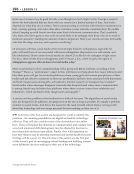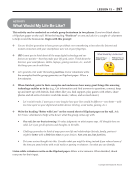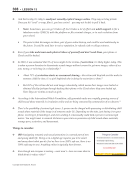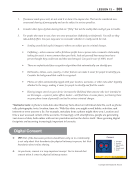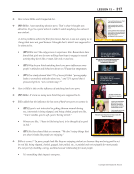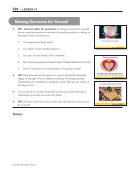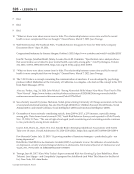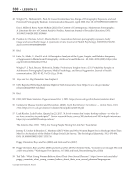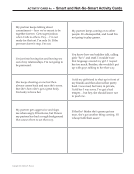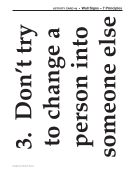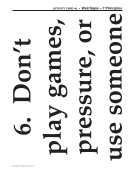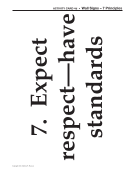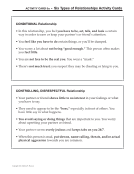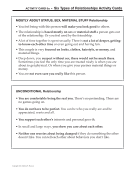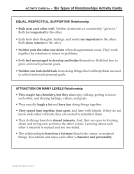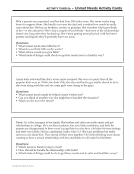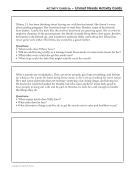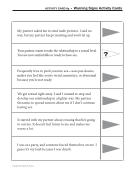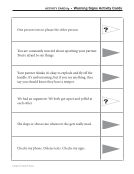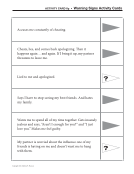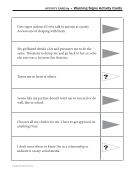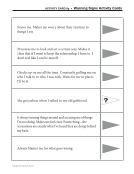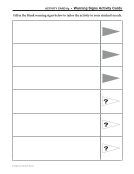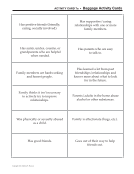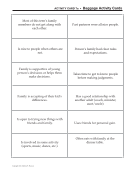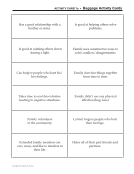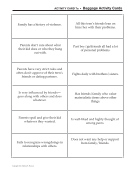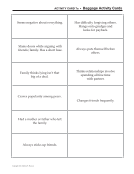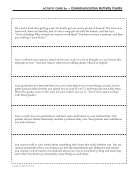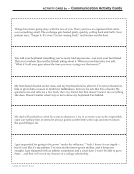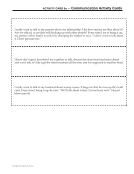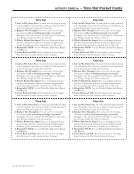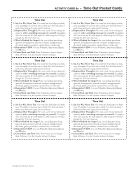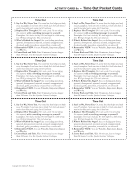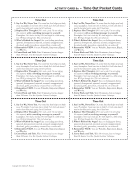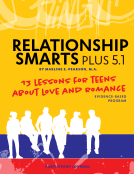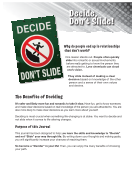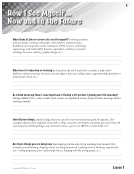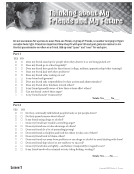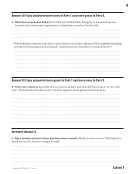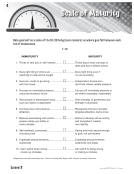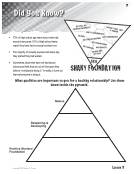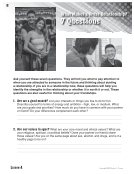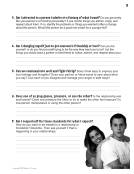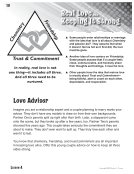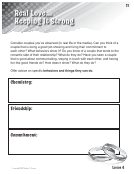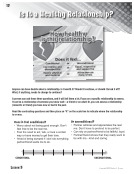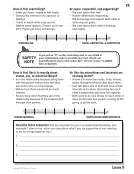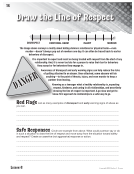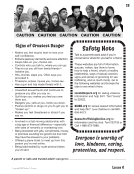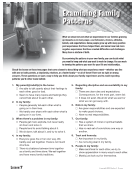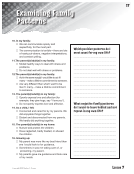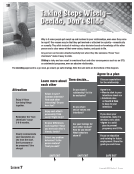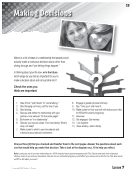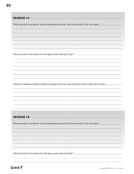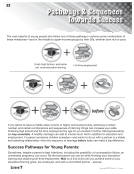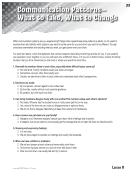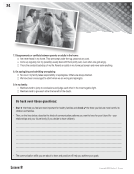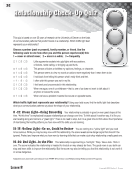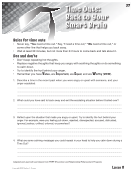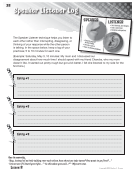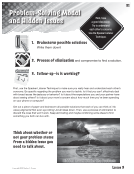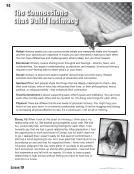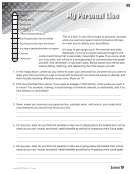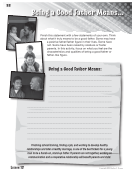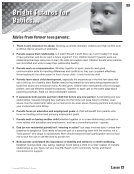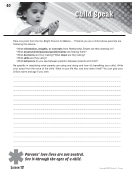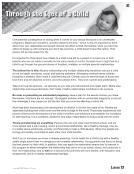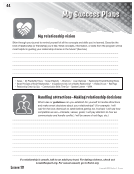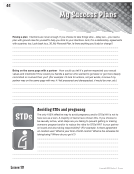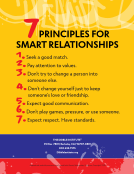Copyright 2025 Marline E. Pearson
LESSON 6 • 119
Sexual Assault and Consent
A person cannot give legal consent to sexual activity or contact when:
• Threatened, forced, coerced, pressured, or manipulated into agreeing.
• Not physically able to (you are drunk, high, drugged,
passed out).
• Not mentally able to (due to illness or disability).
• Younger than 16 (in most states) or 18 (in others).
What is not considered consent in sexual assault?
• Silence: Just because someone does not say “no” doesn’t
mean the person is saying “yes”.
• Having consented before: Just because someone said “yes”
in the past does not mean the person is saying “yes” now.
• Being in a relationship and/or having had prior sexual contact
with them before does not mean that there is consent now.
• Being drunk or high.
• Not fighting back: Not putting up a physical fight doesn’t
mean consent.
• Sexy clothing, dancing, or flirting.
Remember:
• Consent is an ongoing process. Saying yes to one activity (kissing, touching) does
not imply consent to another activity.
• One can change their mind and choose to stop. You must stop instantly when
consent is withdrawn.
• Saying yes to a sexual activity is not consent for all types of sexual activity.
• Consent is a two-way street. Boys, too, must voluntarily agree to physical intimacy
and should not be subject to manipulation or pressure from girls or other guys.
Everyone has a right to say no to unwanted advances.
• Consent applies to digital images, too. Forwarding or posting explicit photos/
videos sent to you without permission from the sender is not consent. And if the
person is under 18, it may be prosecuted under child sexual abuse material laws.
• A victim is never to blame for the actions of a perpetrator.
See rainn.org for more information and help 24/7.
Parent/Trusted Adult: Discuss the points with your teen.
Signature: ____________________________________________________
RESOURCE 6e •
LESSON 6 • 119
Sexual Assault and Consent
A person cannot give legal consent to sexual activity or contact when:
• Threatened, forced, coerced, pressured, or manipulated into agreeing.
• Not physically able to (you are drunk, high, drugged,
passed out).
• Not mentally able to (due to illness or disability).
• Younger than 16 (in most states) or 18 (in others).
What is not considered consent in sexual assault?
• Silence: Just because someone does not say “no” doesn’t
mean the person is saying “yes”.
• Having consented before: Just because someone said “yes”
in the past does not mean the person is saying “yes” now.
• Being in a relationship and/or having had prior sexual contact
with them before does not mean that there is consent now.
• Being drunk or high.
• Not fighting back: Not putting up a physical fight doesn’t
mean consent.
• Sexy clothing, dancing, or flirting.
Remember:
• Consent is an ongoing process. Saying yes to one activity (kissing, touching) does
not imply consent to another activity.
• One can change their mind and choose to stop. You must stop instantly when
consent is withdrawn.
• Saying yes to a sexual activity is not consent for all types of sexual activity.
• Consent is a two-way street. Boys, too, must voluntarily agree to physical intimacy
and should not be subject to manipulation or pressure from girls or other guys.
Everyone has a right to say no to unwanted advances.
• Consent applies to digital images, too. Forwarding or posting explicit photos/
videos sent to you without permission from the sender is not consent. And if the
person is under 18, it may be prosecuted under child sexual abuse material laws.
• A victim is never to blame for the actions of a perpetrator.
See rainn.org for more information and help 24/7.
Parent/Trusted Adult: Discuss the points with your teen.
Signature: ____________________________________________________
RESOURCE 6e •


























































































































































































































































































